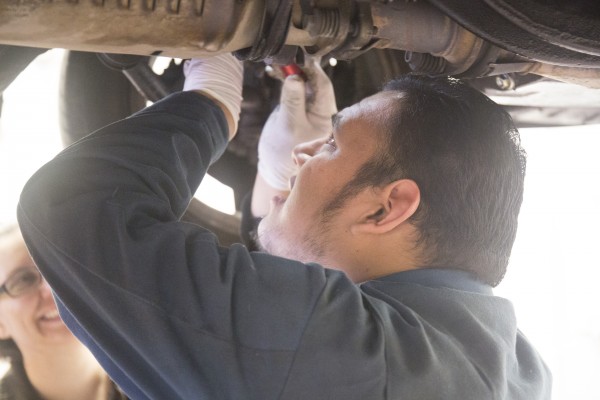 Search
MiraCosta
Search
MiraCosta
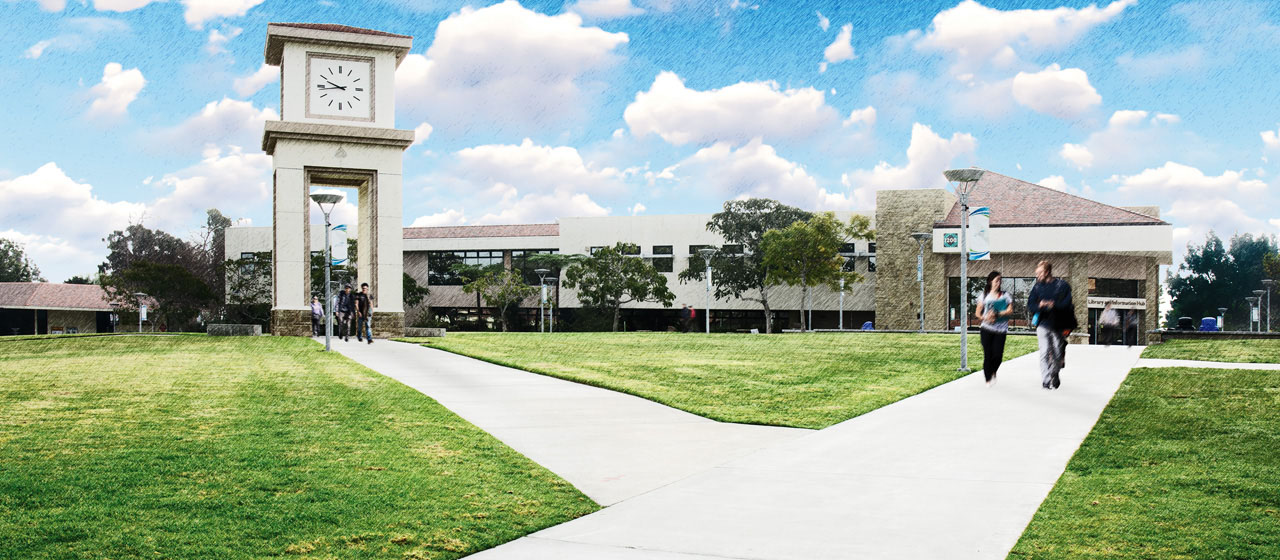
Automotive Technology
Automotive Technology
How to Read Course Descriptions
For more detailed information about a course, such as its content, objectives, and fulfillment of a degree, certificate, or general education requirement, please see the official course outline of record, available on the Courses and Programs webpage at https://www.miracosta.edu/governance/courses-and-programs-committee/curriculum-management-system.html.
Courses
AUTO 100: Basic Motorcycle Maintenance and Small Engine Repair
Units: 4
Prerequisites: None
Acceptable for Credit: CSU
Lecture 3 hours, laboratory 3 hours.
Course Typically Offered: Fall, Spring
This introductory course combines theory with practical experience to provide students with the necessary skills to perform two- and four-cycle small engine maintenance, tune-up, and repair. The course covers the operation, maintenance, and repair of landscaping management equipment as well as an intensive study of the theory and repair of motorcycle systems. The course is designed for students without small engine experience and those who wish to acquire entry level skills in motorcycle maintenance and repair.
AUTO 102: Preventive Maintenance and Engine Performance
Units: 4
Prerequisites: None
Acceptable for Credit: CSU
Lecture 3 hours, laboratory 3 hours.
Course Typically Offered: Fall, Spring, and Summer
Designed to develop an understanding of the operation, care, preventive maintenance, and light repair of the automobile, this course covers all major systems and components, including tires, wheels, brakes, suspensions, characteristics of fuel, oil, and lubricants; maintenance of smog devices; basic engine performance, automotive electronics procedures; and safety factors. Students apply hands-on service, diagnostic, and light repair procedures to prepare them for entry level positions in the automotive industry. C-ID AUTO-110X.
AUTO 105: Automotive Reconditioning and Detailing
Units: 4
Prerequisites: None
Acceptable for Credit: CSU
Lecture 3 hours, laboratory 3 hours.
Course Typically Offered: Fall, Spring, and Summer
This course covers interior and exterior detailing processes, including identification of paint condition and types, use of car-care chemicals, machine polishing, maintenance of the paint surface, and customer communication. The course also covers inspection procedures for roadworthiness and safety, including an overview of the retail certification processes for used vehicles prior to sale.
AUTO 110: History of the Automobile
Units: 3
Prerequisites: None
Acceptable for Credit: CSU, UC
Lecture 3 hours.
Course Typically Offered: Fall, Spring, and Summer
This course surveys the history, culture, and societal impact of the automobile in the United States from the early twentieth century through present times. Students examine how the automobile has transformed American society and how it continues to influence social status, consumer purchasing, advertising, consumption, transportation choices, and urban design. The course also explores the automobile's impact on modern day manufacturing processes, technological innovations, market competition, environmental concerns, and governmental regulations.
AUTO 125: CA Smog Technician Engine and Emission Control - Level 1
Units: 4
Prerequisites: None
Acceptable for Credit: CSU
Lecture 3 hours, laboratory 3 hours.
Course Typically Offered: Spring
This course (plus other requirements and course work) prepares students to qualify for the California Smog Check Technician Examination using Nissan and other Asian manufacturer-specific and standard Bureau of Automotive Repair (BAR) materials. The course covers the following BAR-certified course: Engine and Emission Control Training Level 1 (formerly known as the Clean Air Car course).
AUTO 130: Basic Engine Performance
Units: 2
Prerequisites: None
Acceptable for Credit: CSU
Lecture 1.50 hours, laboratory 1.50 hours.
Course Typically Offered: Fall, Spring, and Summer
This course introduces students to the theory and operation of the internal combustion engine. Topics include cooling, lubrication, ignition, fuel systems, and emission control systems, as well as maintenance and servicing procedures. It also introduces students to hybrid technology and computerized systems, and prepares them for AUTO 141 Automotive Engine Performance and Driveability.
AUTO 135: Auto Electronic Fundamentals
Units: 4
Prerequisites: None
Acceptable for Credit: CSU
Lecture 3 hours, laboratory 3 hours.
Course Typically Offered: Fall, Spring
This course prepares students for the study of automotive electrical and electronic computer control systems. It covers the fundamentals of electricity, electromagnetism, electromagnetic induction, electronics, and D/C and A/C current theory. The course provides in-depth coverage of voltage, amperage, resistance, and Ohm's Law, and it emphasizes electronic principles and proper use of a Digital Volt Ohm Meter (DVOM). Topics include the overall theory, service, and testing of the battery, charging system, starter, and ignition. This class prepares students for the ASE A6 Exam and California State Headlight Adjusters license.
AUTO 140: Automotive Engine Technology
Units: 4
Prerequisites: None
Acceptable for Credit: CSU
Lecture 3 hours, laboratory 3 hours.
Course Typically Offered: Fall, Spring
This course introduces students to automotive engine mechanical theory and repair. Topics include four-cycle engine theory and operation, lubrication and cooling system service and repair, and engine removal and installation. In the on ground or hybrid course students disassemble, inspect, and assemble engine blocks and cylinder heads to factory specifications. In the 'online only' course students perform the same lab tasks in a virtual environment. This course prepares students for the Automotive Service Excellence (ASE) A1 Engine Repair examination.
AUTO 141: Automotive Engine Performance and Drivability
Units: 4
Prerequisites: None
Acceptable for Credit: CSU
Lecture 3 hours, laboratory 3 hours.
Course Typically Offered: Fall, Spring
This engine performance course covers diagnostics, service, and repair of fuel, ignition, starting, charging, emission, and computer systems. Students use state-of-the-art equipment to diagnose and repair problems using proper repair techniques, automotive safety, and service protocol. This course helps prepare students for the Automotive Service Excellence (ASE) A8 Engine Performance examination and entry-level employment as engine performance technicians.
AUTO 155: Manual Transmissions and Transaxles
Units: 4
Prerequisites: None
Acceptable for Credit: CSU
Lecture 3 hours, laboratory 3 hours.
Course Typically Offered: Fall, Spring
This course introduces the theory, service, and repair of manual transmissions (RWD) and manual transaxles (FWD). Students learn to identify, evaluate, service, remove, and replace transmissions and transaxles. Topics include theory, service, and repair of manual and hydraulic clutch systems and driveline components. (Note: When the course is taught online, the lab tasks and instructor demonstration are performed in a virtual environment.) The course helps students prepare for the Automotive Service Excellence (ASE) A3 Manual Transmission examination. C-ID AUTO-130X.
AUTO 156: Automatic Transmissions and Transaxles
Units: 4
Prerequisites: None
Acceptable for Credit: CSU
Lecture 3 hours, laboratory 3 hours.
Course Typically Offered: Fall, Spring
This course introduces the theory, service, and repair of automatic transmissions (RWD) and automatic transaxles (FWD). Students learn to identify, evaluate, service, remove, and replace transmissions and transaxles. Topics include theory, service, and repair of electronic assist automatic transmission components and related driveline components. (Note: When the course is taught online, the lab tasks and instructor demonstration are performed in a virtual environment.) This course helps prepare students for the Automotive Service Excellence (ASE) A2 Automatic Transmission examination. C-ID AUTO-120X.
AUTO 160: Automotive Suspension, Steering, and Alignment
Units: 4
Prerequisites: None
Acceptable for Credit: CSU
Lecture 3 hours, laboratory 3 hours.
Course Typically Offered: Fall, Spring
This course covers automotive passenger car and light truck alignment, steering, and suspension systems. It emphasizes the theory and function of modern front- and rear-wheel drive suspension systems and equipment, safety procedures, proper service techniques, component failure analysis, and repair. Students practice alignment procedures on state-of-the-art alignment equipment. This course prepares students for the Automotive Service Excellence (ASE) A4 Suspension and Steering examination. Note: When the course is offered online, lab tasks and instructor demonstration are performed in a virtual environment.
AUTO 161: Automotive Brake Service and Repair
Units: 4
Prerequisites: None
Acceptable for Credit: CSU
Lecture 3 hours, laboratory 3 hours.
Course Typically Offered: Fall, Spring
This course covers the theory, service, and repair of hydraulic brake, antilock brake, traction control, and regenerative brake systems. Students learn complete service and repair of front and rear brake systems. The course includes measuring and machining brake rotors and drums to factory specifications, using proper safety protocols, diagnostic strategies, and repair techniques. Students practice these techniques on state-of-the-art stationary and on-the-car brake lathe equipment. This course prepares students for the Automotive Service Excellence (ASE) A5 Brakes examination.
AUTO 200: Automotive Electric and Hybrid Vehicles
Units: 4
Prerequisites: None
Advisory: AUTO 102 or AUTO 130.
Acceptable for Credit: CSU
Lecture 3.50 hours, laboratory 1.50 hours.
Course Typically Offered: Fall, Spring, and Summer
This course covers the theory, safety procedures, service, and repair of automotive hybrid, electric, and hydrogen powered vehicles. The course emphasizes design, specialized tools, equipment, and component failure analysis. Students learn the complex theories of high voltage DC electrical systems, AC synchronous traction motors, regenerative braking, hydrogen fuel cell technology, and the unique characteristics of hybrid internal combustion engines coupled with manufacturer-specific service and repair protocol. This course introduces students to existing and future alternative fuel technologies and prepares them for entry-level employment as electric and hybrid/electric vehicle technicians. C-ID ALTF-100X
AUTO 201: Alternative Fuel Vehicles
Units: 2
Prerequisites: None
Acceptable for Credit: CSU
Lecture 1.50 hours, laboratory 1.50 hours.
Course Typically Offered: Fall or Spring
This alternative fuel vehicles course emphasizes biodiesel, natural gas, propane, biofuels derived from algae, alcohol/ethanol products (cellulosic and crop-based), and new propulsion sources currently under development. Students learn basic diesel and biodiesel technology, including oil titration and biodiesel production. The course covers the properties of gasoline, alcohol, ethanol, methanol, pressurized fuels such as natural gas and propane, and how crude oil is derived from algae production for use as a carbon-neutral internal combustion alternative. It also examines the environmental, ethical, political, and geopolitical ramifications of the production of these fuels. This course prepares students for employment as entry-level alternative fuel specialists and fleet vehicle attendants.
AUTO 205: Automotive Reconditioning and Paint Fundamentals
Units: 4
Prerequisites: None
Acceptable for Credit: CSU
Lecture 3 hours, laboratory 3 hours.
Course Typically Offered: Spring
This course covers procedures for automotive reconditioning and paint refinishing fundamentals. Topics include exterior and interior cosmetic reconditioning processes consisting of paint touch-up, bumper repair, interior surface repair, rotary polishing, and introduction to paintless dent removal (PDR). The course also covers automotive business start-up procedures.
AUTO 220: HVAC Heating, Ventilation, and Air Conditioning
Units: 3
Prerequisites: None
Acceptable for Credit: CSU
Lecture 1.50 hours, laboratory 4.50 hours.
Course Typically Offered: Summer
This course covers the fundamental theories, diagnosis, service, and repair practices of automotive air conditioning and heating systems. Topics include the procedures of recovering the refrigerant, replacing parts, evacuating, charging the air conditioning units, retrofitting, and computer-controlled climate control systems. This course helps prepare students to pass the Automotive Service Excellence (ASE) A7 heating, ventilation, and air conditioning test. C-ID AUTO-170X.
AUTO 225: Smog Check Training Inspection Procedures - Level 2
Units: 2
Prerequisites: None
Acceptable for Credit: CSU
Lecture 1.50 hours, laboratory 1.50 hours.
Course Typically Offered: Spring
This course (plus other requirements and course work) prepares students to qualify for the California Smog Check Technician Examination using Nissan and other Asian manufacturer-specific and standard Bureau of Automotive Repair (BAR) materials. The course covers the Smog Check Training Inspection Procedures Level 2 BAR-certified course.
AUTO 235: Advanced Electronics and Electronic Engine Control Systems
Units: 4
Prerequisites: AUTO 135.
Acceptable for Credit: CSU
Lecture 3 hours, laboratory 3 hours.
Course Typically Offered: Fall, Spring
This course covers advanced automotive electrical systems and computerized engine control systems as they relate to fuel/air management, ignition, emission controls, and accessory electronics. It provides in-depth coverage of engine management sensors, actuators, and transaxle electronic controls, and it emphasizes OBD II systems and computerized CAN BUS communications. The course includes infotainment systems and hybrid/EV safety, and it prepares students for the ASE A6 certifiction exam in automotive electrical and electronic systems.
AUTO 292: Internship Studies
Units: 0.5-3
Prerequisites: None
Corequisite: Complete 75 hrs paid or 60 hrs non-paid work per unit.
Enrollment Limitation: Instructor, dept chair, and Career Center approval. May not enroll in any combination of cooperative work experience and/or internship studies concurrently.
Acceptable for Credit: CSU
Course Typically Offered: To be arranged
This course provides students the opportunity to apply the theories and techniques of their discipline in an internship position in a professional setting under the instruction of a faculty-mentor and site supervisor. It introduces students to aspects of the roles and responsibilities of professionals employed in the field of study. Topics include goal-setting, employability skills development, and examination of the world of work as it relates to the student's career plans. Students must develop new learning objectives and/or intern at a new site upon each repetition. Students may not earn more than 16 units in any combination of cooperative work experience (general or occupational) and/or internship studies during community college attendance.
AUTO 296: Topics in Automotive Technology
Units: 1-3
Prerequisites: None
Acceptable for Credit: CSU
Lecture 1 hour.
Lecture 2 hours.
Lecture 3 hours.
Course Typically Offered: To be arranged
This course gives students an opportunity to study topics in Automotive Technology that are not included in regular course offerings. Each Topics course is announced, described, and given its own title and 296 number designation in the class schedule.
AUTO 299: Occupational Cooperative Work Experience
Units: 1-4
Prerequisites: None
Corequisite: Complete 75 hrs paid or 60 hrs non-paid work per unit.
Enrollment Limitation: Career Center approval. May not enroll in any combination of cooperative work experience and/or internship studies concurrently.
Acceptable for Credit: CSU
Course Typically Offered: To be arranged
Cooperative Work Experience is intended for students who are employed in a job directly related to their major. It allows such students the opportunity to apply the theories and skills of their discipline to their position and to undertake new responsibilities and learn new skills at work. Topics include goal-setting, employability skills development, and examination of the world of work as it relates to the student's career plans. Students may not earn more than 16 units in any combination of cooperative work experience (general or occupational) and/or internship studies during community college attendance.
Campus Locations
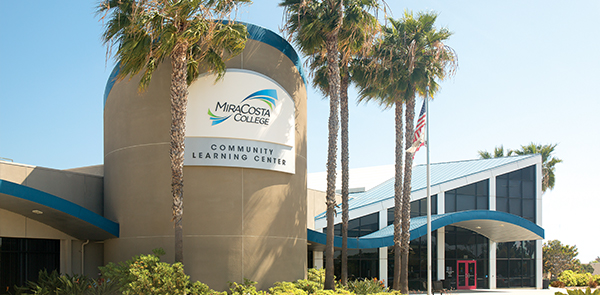
1831 Mission Avenue
Oceanside, CA 92058
760.795.8710
888.201.8480
View Map
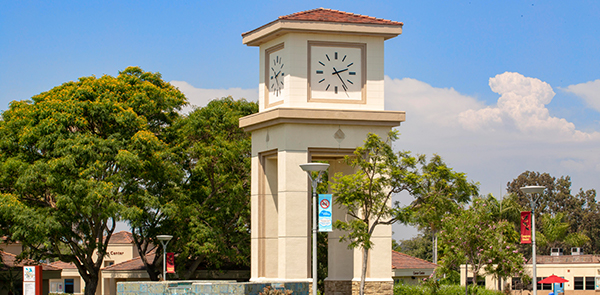
1 Barnard Drive
Oceanside, CA 92056
760.757.2121
888.201.8480
View Map
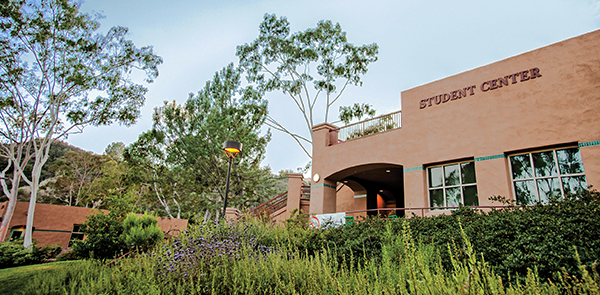
3333 Manchester Avenue
Cardiff, CA 92007
760.944.4449
888.201.8480
View Map
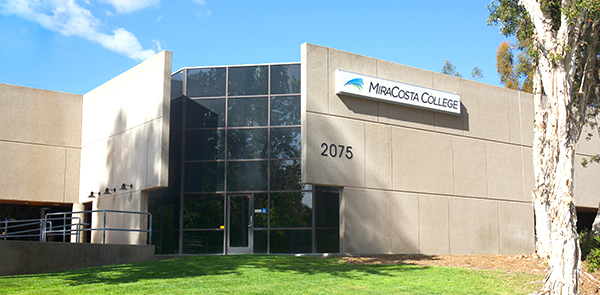
2075 Las Palmas Drive
Carlsbad, CA 92011
760.795.6820
888.201.8480
View Map
